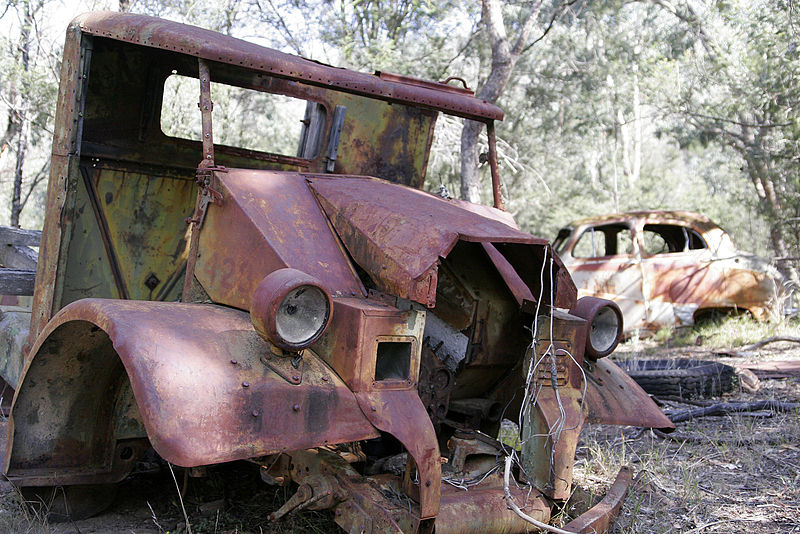Imagine the United States political and economic system as a beat up old car.
The doors are dented. The back window is held in place with electrical tape. The engine is in need of an overhaul. The belts are all worn. The bumper scrapes along the asphalt as the car lurches along.Driving down the street, we’re all pretty embarrassed by our ride.
Along comes the shutdown.
Let’s imagine this as one of the wheels falling off. Or more accurately, a few of the passengers inside the car don’t like the fact that someone turned the AC up, so when the driver stops at a red light, they all pile out of the car, rip off one of the wheels, and demand that the temperature be changed before they’ll give the wheel back.
No one can get anywhere.
The wheelnappers vehemently protested getting the damn wheel put back on despite most of the other passengers and the driver being quite happy with the AC levels. In fact, the car saboteurs appear opposed to the idea of cars in general, despite their having volunteered to ride in one.
In real world terms, this was the GOP shutdown. The first order impacts were significant. Yosemite National Park was closed on its birthday. The FDA took a break from monitoring fecal matter and pus in meat. You’ve read the stories. There were second order impacts, too. Things like restaurant owners near national monuments who will never recover the lost revenue. It has been estimated that the shutdown will have cost the United States $24 billion.
As it turns out, there are vital functions performed by U.S. government agencies, despite the Far Right’s insistence that we can do it all on our own, and what we can’t we can get from Aetna and Halliburton.
Back to the car analogy: the deal to reopen the government can be thought of as putting the tire back on the car. Some friends of the wheel hostage takers convinced them that this whole taking the wheels off business over something silly like the AC was pretty crazy. We agreed, that no matter how bad this car might be, we’re still riding in it for the time being.
Shutdown over.
Democrats are declaring victory. Some Tea Partiers are declaring victory too, and why the hell not? Their constituency’s connection with reality is tenuous at best, so they might as well claim that the Tea Party invented watery light beer and NASCAR and deep fried turkey and solidify their House slots for 2014.
We can all go down the road a ways a bit more, but the fundamental problems are all still there. The car is still a clunker.
In real world terms, the United States system of government is horribly broken. Gerrymandered districts. Unfettered corporate spending. Lax campaign finance laws.
There’s going to be another wheel falling off, and then another. This car is on its last legs, and there is some rough road ahead of us (climate change, rising healthcare costs, military spending out of control, more seasons of Dancing with the Stars).
But instead of asking the big questions, we’re all just back to arguing about the AC.
We don’t question whether the car we have is the right one.
Or whether we should we even be using a car in the first place.
Maybe we should be in a train.
Or we should be walking.
If this extended metaphor is getting a bit obtuse, allow me to bring it back around.
The GOP shutdown isn’t the problem. The problem is that our current level of thinking about the challenges we face isn’t adequate to the magnitude of said challenges. The current economic and political order — globalized, mostly unfettered capitalism — is completely at odds with the needs of the vast majority of the people on the planet (not to mention the fir trees, seals, kangaroos, rain forests, oceans). It’s not a U.S. problem, or a Canadian problem, or a South African problem. It’s an Earth problem. We are coming up against the fundamental failure of the nation state system, in its current iteration, to meet global needs, and very few discussions are centered around the root causes.
If we, as a species, hope to make it through the next two hundred years, hell, the next fifty – a few things have to change.
It’s not enough to talk about what big @*&holes some of the passengers have been.
We have to start thinking beyond the car.
I for one, am happy to find a new way to get down the road.



